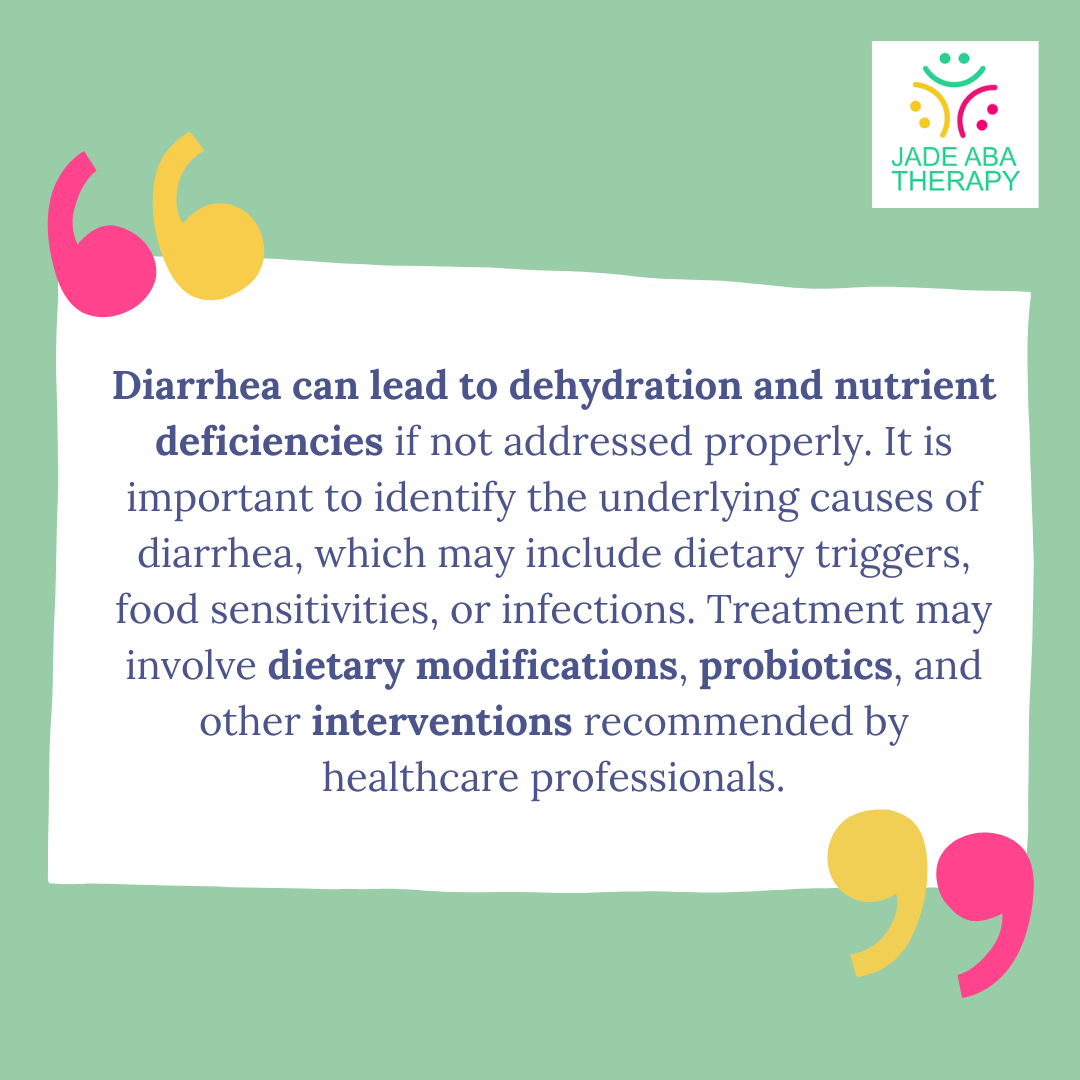According to research, individuals with ASD are more likely to experience GI problems compared to typically developing individuals. In fact, one study found that children with ASD were six to eight times more likely to report GI symptoms such as bloating, constipation, and diarrhea.
These GI problems can significantly impact the quality of life for individuals with autism and contribute to additional challenges they may face.
But what exactly causes these issues among autistic individuals? That’s what we’re going to find out in this article.

Prevalence of GI Problems in Autism
The prevalence of GI problems in individuals with autism is noteworthy. In a study conducted by Stony Brook University, researchers found that 42 percent of children with autism and 30 percent of their siblings had at least one GI disorder.
It is important to note that constipation was more commonly reported among the autism group.
Understanding the high prevalence of GI problems in individuals with autism is crucial in order to provide appropriate care and support. Recognizing and addressing these GI issues can potentially alleviate some of the discomfort and improve the overall well-being of individuals with autism.
By acknowledging the link between autism and GI problems, parents, caregivers, and healthcare providers can collaborate to develop comprehensive treatment plans that address both the behavioral/social symptoms associated with ASD and the underlying GI issues.
It is also important to note that the gut flora of individuals with autism, whether with or without GI symptoms, differs from that of typically developing individuals. Further research is being conducted to better understand the role of gut flora in autism and GI problems.

Impact of Gut Problems on Autism Symptoms
Individuals with autism spectrum disorder (ASD) often experience gastrointestinal (GI) problems, and these issues can have a significant impact on their overall symptoms and well-being.
Understanding the connection between GI symptoms and behavioral/social symptoms, as well as the role of gut flora in autism and GI problems, is crucial for effectively managing these challenges.
GI Symptoms and Behavioral/Social Symptoms
Research has shown that there is a strong connection between GI symptoms and behavioral/social symptoms in individuals with ASD.
Children with ASD who experience GI problems are also more likely to have more severe symptoms of ASD. The presence of GI symptoms can exacerbate behavioral issues, including irritability, aggression, and self-injurious behaviors.
Additionally, these GI problems can impact social interactions and communication skills, further affecting the overall quality of life for individuals with ASD.
Treating the GI symptoms in individuals with ASD can sometimes lead to an improvement in their behavioral and social symptoms. Addressing the underlying GI issues may help alleviate discomfort and improve overall well-being, which in turn can positively impact ASD-related symptoms.
The Role of Gut Flora in Autism and GI Problems
Gut flora, which is the complex community of microorganisms residing in the gastrointestinal tract, plays a crucial role in both autism and GI problems. Research has indicated that children with ASD, whether with or without GI symptoms, have different gut flora populations compared to typically developing individuals.
A study conducted by researchers from the University of California, Davis MIND Institute found that children with ASD and GI issues tend to display worse behavior than children with ASD but no GI problems.
The immune activation observed in these cases may be exacerbating symptoms and complicating the condition. This highlights the intricate relationship between gut health, the immune system, and the symptoms experienced by individuals with ASD.
Research is still ongoing to explore the use of probiotics and other interventions aimed at restoring a healthy balance of gut bacteria in individuals with ASD.

Common GI Problems in Autism
Children with autism spectrum disorder (ASD) often experience gastrointestinal (GI) problems at a higher rate compared to typically developing children. These GI problems can have a significant impact on their overall well-being and may exacerbate the symptoms of ASD.
Here, we’ll explore three common GI problems that are experienced by autistic individuals.
Constipation
Constipation is a prevalent GI problem in children with autism. It is characterized by infrequent bowel movements, difficulty passing stool, and hard or dry stools.
Constipation can cause discomfort and pain, leading to irritability and changes in behavior. It is important to address constipation promptly to improve the overall well-being of the child.
This may involve dietary changes, increased fiber intake, increased fluid intake, and the use of stool softeners or laxatives under the guidance of a healthcare professional.
Diarrhea
Diarrhea, which is characterized by loose and watery stools, is another GI problem that children with autism may experience. While it is less common than constipation, it is still significant, with 28 percent of children with autism experiencing diarrhea according to a study.

Gastroesophageal Reflux
Gastroesophageal reflux (GER), commonly known as acid reflux, occurs when stomach acid flows back into the esophagus. Children with autism may experience GER at a higher rate, leading to symptoms such as heartburn, regurgitation, and discomfort.
While the prevalence of GER in autism is not specified in the extra context, it is worth mentioning due to its significance in the context of common GI problems.
GER can be managed through lifestyle modifications, such as avoiding trigger foods, eating smaller and more frequent meals, and keeping a more upright posture after meals.
In some cases, medication may be prescribed to reduce the production of stomach acid or improve the function of the esophageal sphincter.

Potential Causes of GI Problems in Autism
While the exact mechanisms are still being studied, there are several factors that may contribute to GI problems in autism. These factors are as follows:
Immune Activation
According to research, there is a connection between immune activation and GI problems in individuals with autism. The aforementioned study conducted by researchers from the University of California, Davis MIND Institute suggests that the immune activation in the gut may contribute to the severity of both GI symptoms and behavioral/social symptoms of ASD.
Genetic and Environmental Factors
Genetic factors may play a role in the development of GI problems in individuals with autism. Research has shown that there may be a genetic link between ASD and GI issues, although the specific genes involved are still being investigated. Certain genetic variations may make individuals more susceptible to developing GI problems.
Environmental factors can also contribute to GI problems in individuals with autism. The study by Stony Brook University researchers also noted that consuming smoothies containing chia seeds, which have been touted as an autism cure on the internet, was associated with higher levels of a bacterial subgroup in children with autism and GI problems.
It’s important to note that the exact mechanisms by which immune activation, genetic factors, and environmental factors contribute to GI problems in autism are still being explored. Further research is needed to gain a deeper understanding of these relationships and develop targeted interventions.
By understanding the potential causes of GI problems in autism, caregivers and healthcare providers can work together to develop appropriate strategies for managing and addressing these issues.
Taking a holistic approach that considers both the GI symptoms and the overall well-being of individuals with autism is crucial for providing the best possible care.